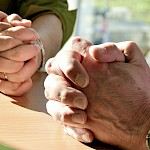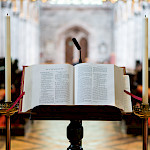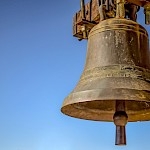Church Today
7.1 What does the word 'church' mean?
The Greek word ‘ecclesia’ means ‘called out’. The church has nothing to do with the world. It is heavenly, called out of this world to belong to Christ.

7.2 What is the church?
God’s Word only knows one church. This church consists of all believers - Christians who have ‘believed the gospel of their salvation’ (Eph 1:13). They have been joined together in one body, not by becoming members of an organisation but by the action of the Holy Spirit (Acts 2:47; 1. Cor 12:13; Eph 1:23).

7.3 When did the church begin?
The church started on the day of Pentecost, 50 days after the Lord’s resurrection (Acts 2).
Why not before?
The church could not have started earlier because Christ had to die, rise and be glorified before the Holy Spirit could come (Jn 7:37-39). In Matthew 16 it was still future: ‘upon this rock I will build my church’ (v. 18).
Why not later?
Some have thought that the church came into existence at a later date because only Jews were involved at Pentecost, and that believers from the Gentiles were not added until later (Acts 10, 11). It must have started at Pentecost in Acts 2 because we read at the end of this chapter that ‘the Lord added daily to the church such [persons] as should be saved.’ So the church already existed by then.
7.4 Is the church revealed in the Old Testament?
No, the mystery of Christ and the church was ‘not made known’ then (Eph 3:5). It was the task of the Apostle Paul to communicate this (Eph 3:2, 7, 8). The Old Testament only contains types (pictures) of the church (for instance Rebecca). However, nobody could recognise the truth of the church from those pictures without the light of the New Testament.

7.5 Who does the church consist of today?
All those who have believed the gospel of their salvation (Eph 1:13) and are as a result joined into one body (1. Cor 12:13), whether they are Jews or Gentiles by natural birth.
7.6 How do you become a member of the church?
Well, you don’t have to do anything except believe on the Lord Jesus Christ. A believer is already a member of the body of Christ (1. Cor 12:12,13) which is the ‘church of the living God’ (Eph 1:22,23; 1. Tim 3:15) the only church recognised by God’s Word. You do not need to join a group or follow a leader.

7.7 Why does the New Testament use pictures to describe the church?
How would you explain to a person who has never seen an aeroplane what an aeroplane is? No doubt you would use a picture, e.g. saying that an aeroplane is like a large bird, made of metal, that drinks fuel instead of water and that cannot land on trees, etc. This would convey something of the idea of what a plane is like. Similarly, God used items we are familiar with (body, bride, house) to explain to us what the church is like.

7.8a What do we mean by saying the church is the body of Christ?
When God says the church is like a body, this tells us that (see 1. Cor 12):
- we are all different just as the members of the body are all different from each other and have different functions
- there is unity, just as the members of a physical body make up one whole
- most importantly, Christ is the Head of this body (see Q 3.10).

7.8b What do we mean by saying the church is the house of God?
In a house everything must be arranged in such a way that it pleases the master of the house. So in God’s house:
- there is a certain order to be observed (1. Tim 3:15)
- there is a display of the glory of God, and honour is given to Him (Ps 26:8) (‘glory’ in JND, ‘honour’ in AV)
- everything must be holy (Ps 93:5).
The above references from the Psalms apply, of course, to God’s house in the Old Testament but they show that glory and holiness are connected with the thought of the house of God. The church is the dwelling place of God today (Eph 2:19-22).

7.8c What do we mean by saying the church is the bride of Christ?
The bride has to do with affection and an exceedingly close, exclusive and indissoluble relationship (Gen 2:24). This picture tells us that there is a relationship of love between Christ and the church (Eph 5:25-32). The affections of the church must be undivided - only for Christ (2. Cor 11:2). And the bride has one great desire - that the bridegroom comes! ‘Even so, come Lord Jesus’ (Rev 22:17, 20).

7.9 What do we mean by the church of God in a particular place?
We must understand that the church of God can be seen in its universal aspect (Eph 1:22.23) and also in its local aspect (1. Cor 12:27), which is what concerns us here. The church of God in a particular place (the local aspect) gives expression to the church of God as a whole (the universal aspect). It consists of all believers in that locality. It is part of the church of God (see Q 7.2).
At the time of the New Testament, the church of God in a locality was easy to see because the Christians came together in one place or, if they were too numerous, they would meet in different houses but in fellowship with one another. They alone were known as Christians and no unbelievers dared to join them (Acts 5:13).
Today, things are more complicated but God’s principles still apply. Men have formed churches, organisations, sects, etc. by introducing memberships other than the membership of the body of Christ. So how can we see or show the church of God in a particular place today? We can only do so by coming together on the basis of Scripture with all those willing to do so, but always bearing in mind that those who come together in this way may not be the whole church in the place concerned.
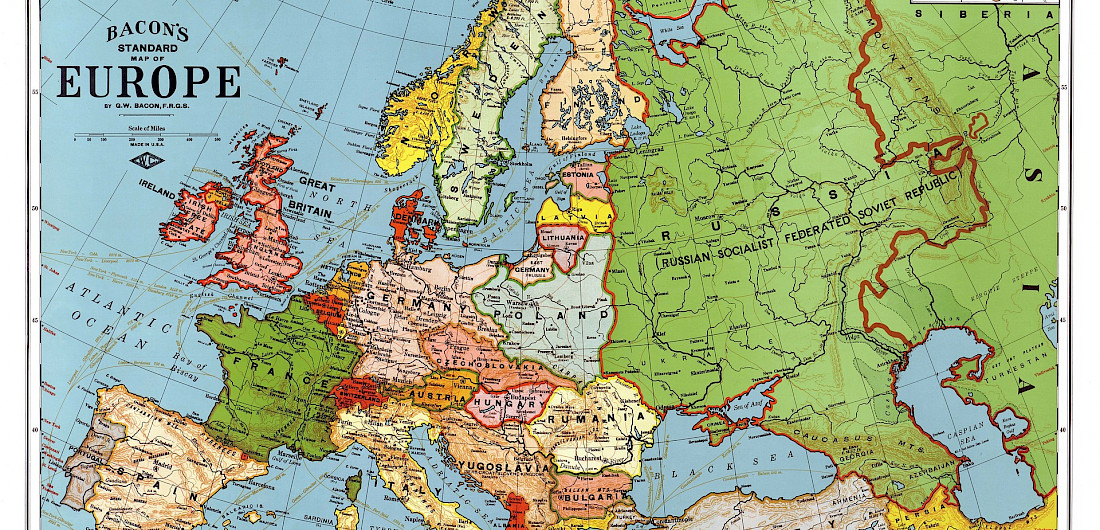
7.10 What does it mean to be ‘gathered to the Lord’s name’?
In principle, a Christian wants to do everything in the Lord’s name, even eating and drinking (Col 3:17). But if you want to be gathered unto His name (Mt18:20), the Lord needs to be at the centre of the meeting so He can direct everything and be the focus of attention. You can only be gathered to the Lord’s name if you recognise His authority. In summary:
- ‘where’ - the place of God’s choice
- ‘two or three’ - that a sufficient testimony can be given to Christ
- ‘are gathered’ - the divine power, (gathered by the Holy Spirit)
- ‘together’ - the divine unity
- ‘unto my name’ - Christ is the name that brings His people together
- ‘there am I’ - the presence of a divine Person: Christ
- ‘in the midst’ - the divine centre.
In conclusion, to be gathered according to Matthew 18:20 it is necessary that:
- the Lord is the centre of the meeting
- the body of Christ is the basis
- the Lord’s authority is recognised by separating from evil.

7.11 What is a church (or ‘assembly’) meeting?
A meeting where ‘the whole church’ in a given locality comes together (1. Cor 14:23) ‘as an assembly’ or ‘as a church’ (1. Cor 11:18). When we say the whole church, this is, of course, those who are able and willing. The New Testament gives at least three purposes for assembly meetings:
7.12 Who conducts the meetings? Is this the role of pastors and/or elders?
When believers are ‘gathered unto his name’ (Mt 18:20) then Christ must be at the centre (see Q 7.10). He directs everything. It is not a meeting led by man. Christ is in charge (1. Cor 12:5), and the Holy Spirit directs, operates, and divides to each one ‘according as he pleases’ (1. Cor 12:11 JND). There is liberty for every brother17 to contribute in giving out a hymn, praying audibly or speaking for edification (1. Cor 14:26-33).
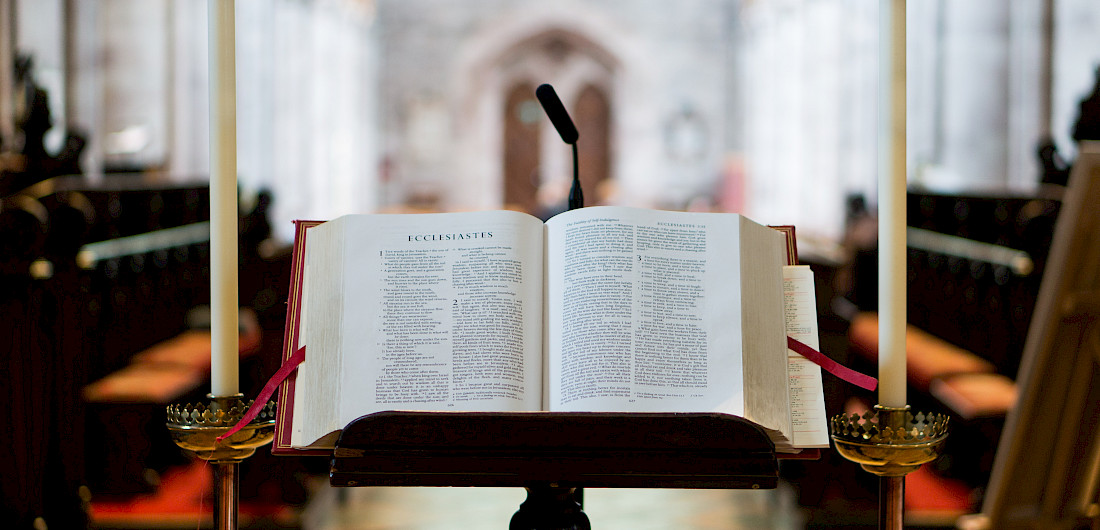
7.13 Who should give ministry of the Word?
By ‘ministry of the word’ (Acts 6:4), we mean the service of teaching and preaching the Word of God to believers. This should be done by those who have received a spiritual gift for this, i.e. teachers and pastors. This ministry may also have a prophetic character: a word for the moment from God, spoken to the conscience of God’s people.
God’s Word does not know of churches with ‘one man ministry.’ In Antioch, there were ‘prophets and teachers,’ not ‘a pastor’, ‘a minister’, ‘a clergyman’ or ‘a priest’ (Acts 13:1). Paul says to the Corinthians, ‘How is it then, brethren? when ye come together, every one of you hath a psalm, hath a doctrine... Let all things be done unto edifying’ (1. Cor 14:26).
All must be done in love, and in the holy fear that comes with the presence of God.

7.14 What is the difference between gifts and offices?
Gifts are spiritual abilities (the gift of teacher, evangelist, etc.). Offices are charges or responsibilities such as deacons or elders.
Gifts are for the whole body of Christ (Eph 4:11, 12), so a teacher, for instance, can teach in other cities or countries, but offices are for a given locality: ‘elders in every city’ (Tit 1:5) and ‘The elders… I exhort… shepherd the flock of God which is among you’ (1. Peter 5:1, 2).

7.15 Should we appoint elders?
In the New Testament, elders were always appointed either by apostles (Acts 14:23) or their delegates who had an express command from an apostle to do so (Tit 1:5). They cannot be appointed today because there are no apostles (apostles have to have seen the Lord, Acts 1:21, 22, and Acts 9:4-6 in connection with 1. Cor 15:8) and therefore no apostolic delegates either.
There are, of course, still men today who have the qualifications set out for elders (1. Tim 3:1-7). However, a careful reading of the list of these qualifications shows that such men have become very rare. But those who meet these standards can still do the work of elders and others should be subject to them (1. Pet 5:2; Acts 20:28).

7.16 What gifts are mentioned in the New Testament?
Five principal gifts are mentioned in Ephesians 4: Christ has given:
- apostles - men who had seen the Lord (Acts 1:22; 9:4.5)
- prophets - those who prophesied; that is, gave God’s Word to the people. Before the New Testament was completed, prophets had revelations (Eph 3:5). Now that the Bible is complete, the revelation is complete, but there is still prophetic ministry: a word from God for the moment, based on Scripture, for edification (1. Cor 14). There were also women who prophesied (Acts 21:9), but not in public or in the assembly (1. Cor 14:34)
- evangelists - those who bring the gospel to lost sinners and draw them to the Lord and into the assembly. A good example is Philip, the evangelist (Acts 21:8), and his activities in Acts 8.
- pastors - those who show care for individuals as a shepherd (what the word pastor means) for the sheep of the flock. Today, many understand something else by the designation ‘pastor’ - a kind of a ‘one-man-does-all’ person, often the man ‘in charge of a church’, but this is not the ‘pastor’ of the Bible. Note that these are referred to only once in Scripture and then in the plural (Eph 4:11).
- teachers - those who have the ability to present the truth of the Word of God in such a way that it is understood and that the hearts of the hearers burn for the truth (Lk 24:27, 32).
In addition, there are many other gifts (1. Cor 12; Rom 12). Note that none of these passages gives us a complete list of all the gifts.

7.17a The miraculous gifts: What was their role?
Why did God give them? For evangelisation? For emotional spectacles? To reduce the sufferings of believers? None of these. God gave miraculous signs to prove that He had started something completely new; a new era, that of the church. The time of the law was over. God had formed the church by the Holy Spirit. He therefore enabled the disciples on the day of Pentecost (= the beginning of the church) to speak in foreign languages which other people could understand. Who could deny that God was at work?
Note that the languages (‘tongues’) were a sign for the Jews only (1. Cor 14:21).
On some occasions there were healings (e.g. Acts 3), not to relieve the sufferings of believers but as a sign to unbelievers (Acts 4:16, 30; Heb 2:4).

7.17b The miraculous gifts: What is their role today?
The miraculous gifts were for the beginning (Heb 2:3, 4). They were the outward proof that the church was a work of God; something entirely new, a new beginning. Of course, God can still work miracles today, and does, but that is a different matter from exercising a gift.
What about tongues then? Well, let me ask you: do you know anyone person who can speak a language he or she has never learned - because that’s what happened in Acts 2? And as for people who do claim that they speak in ‘tongues,’ do they observe the instructions for doing this, i.e. the Apostle’s teaching in 1. Corinthians 14? Are all contributions translated (see vs. 13 and 27)? Are they used as a ‘sign for unbelievers’ (v. 22)? Do women keep silence (v. 34)? If God gives a gift, as described in the New Testament, we should recognise it. But beware of counterfeit ‘gifts’ that are praised as ‘gifts’ but do not appear to be exercised according to Biblical practice.

7.18 What do we mean by ‘the ruin of the church’?
Simply that things today are very different from the way God established them for the church in the beginning at Pentecost. Christians are fragmented into diverse groups. Many have become members of organisations instead of simply acting as members of the body of Christ.
Much evil is present in the way Christianity is practised today. This takes various forms:
- ecclesiastical evil (one-man ministry etc.)
- doctrinal evil (about Christ, His sinlessness, His incarnation, His manhood, His work, salvation, and so on) including the denial of the verbal inspiration of the Scriptures (see chapter 8)
- moral evil is tolerated now in many places (1. Cor 5).
It seems to be a constant downward trend. At the same time, many Christians object to these forms of evil but remain associated with them.

7.19 How can you show the unity in a time of ruin and fragmentation?
Has man spoiled everything then? Yes, but that does not mean that it has become impossible to practice biblical principles. If men form organisations etc. you can still do what the Bible says: simply gather around the Lord Jesus (Mt18:20), realising that we are members of the body of Christ (1. Cor 12:12, 13).
Pray, and the Lord will guide you to other believers who want to recognise Him as Lord and obey His Word. Meet with them, simply desiring to practise, with His help and by His grace, what the Bible teaches. Now, this does not mean trying to form a new church. God formed the church long ago and that is enough. Today, we simply have to recognise that He has done it.

7.20 Who should be received for the breaking of bread?
Every believer who is not disqualified. Why every believer? Because this is the privilege of every member of the body of Christ (1. Cor 10:17). So what would disqualify us? How can this happen? Well, there are mainly three reasons:
- moral evil. The man in 1. Cor 5, for instance, was behaving so immorally that he had to be put out.
- doctrinal evil; for instance if someone does not bring the doctrine of the Christ (2. John 9-11) you must not even receive him into your house, still less remember the Lord with him. Doctrinal evil is ‘leaven’ (Gal 5:9).
- association with evil (2. Tim 2:21). The one who greets the heretic in 2. John 9-11 becomes a ‘partaker of his evil works.’ Those who visit the idol temple in Corinth become ‘partakers of the table of demons,’ even though they did not believe in the idols themselves (1. Cor 10:19-22). See also 1. Corinthians 15:33 and Revelation 2:14.
7.21 What is the relationship between local churches?
A local church (or assembly) is part of the whole church of God (1. Cor 1:2). Local churches therefore act in harmony with one another as members of the human body work with one another, not against one another. Obviously, the body is not composed of assemblies but of individuals - but the individuals who compose the local assemblies are all members of the one body. ‘There is one body’ (Eph 4:4) and there is one head in heaven, Christ Himself, who desires to direct the believers and their assemblies according to His thoughts and in harmony with one another.
The local assembly is only the expression and representation of the whole church of God (1. Cor 10:17 and 12:27, see also Q 7.9).
When a local assembly takes a decision (say, in discipline or in receiving a believer into fellowship) then this is binding for all other assemblies: ‘what you bind on earth shall be bound in heaven’ (Mt 18:18). Paul repeats that his instructions to the Corinthians were also binding in all other places (1. Cor 1:2; 4:17; 7:17; 11:16).
7.22 What is assembly discipline?
The aim of assembly discipline is to help restore a person who has acted in a way that is not consistent with Christian doctrine and practice. The type of discipline to be used depends on the case. There are several different types:
- restoration of one overtaken in a fault (Gal 6:1, 2)
- warning and withdrawing from and ‘noting’ or ‘marking’ those walking disorderly (1. Thess 5:14; 2. Thess 3:6, 14, 15)
- public rebuke (1. Tim 5:20, see also the example in Gal 2:11-14)
- dealing with a heretic and marking those who cause divisions (Tit 3:10, 11; Rom 16:17)
- silencing those who teach strange doctrines (1. Tim1:3, 4; Tit 1:10, 11)
- personal sin against another believer (Mt 18:15ff)
- putting away wicked persons - the most serious form of assembly discipline. The assembly has to recognize, with humiliation, that it can do nothing any more and has to leave the case in God’s hands (read 1. Corinthians 5).

7.23 What is a sect?
The world describes a religious group as a sect when it does not belong to a big official religion. Christianity, in its beginnings, was designated a ‘sect’ (see Acts 24:14 JND; 28:22).
Originally, it meant a school or a party, whose tenets were based on the opinions of their leaders. Sects, in this sense, come about when a special doctrine is formed (or a scriptural doctrine is overemphasised) and, in order to belong to this school or party, people have to subscribe to this doctrine. So it was in Corinth: there was a tendency to choose and follow favourite teachers (1. Cor 1:11-13; 3:3-5) and there was a danger that the resulting party spirit would lead to the formation of sects (see 1. Cor 11:18, 19).
Now, what is it that really makes a group of Christians a sect, or sectarian? Mainly two things:
- to create formally an organisation which people need to belong to before they can enjoy fellowship with the other members
- to impose conditions on those who are received into fellowship
- not the biblical conditions of pure walk, doctrine and association
- but extra-biblical requirements, e.g. a certain dress code.

7.24 Are ‘we’ a denomination?
If you are part of a denomination (an organisation with a name) then you had better leave. The early Christians did not have a name and we do not need one today. People had simply labelled them ‘Christians’ because everyone knew they belonged to Christ.
We should be content with just being members of the body of Christ.

7.25 How do we relate to other Christians who do not meet with us?
They are our brothers and sisters in Christ. We may not be able to walk with them (break bread with them) but we love them. How do we show this love? By seeking their best! By trying to help them in a brotherly way, building them up and furthering their faith. This often involves giving teaching from the Word of God.

7.26 What is more important: to be doctrinally correct or be devoted to the Lord?
It is no use playing one off against the other. We need both! Doctrine without devotion might be compared to a skeleton without flesh. Devotion without doctrine is like a body which does not have a skeleton to make it stand.













